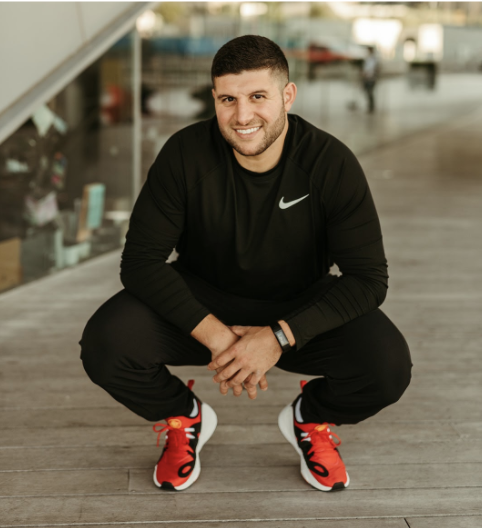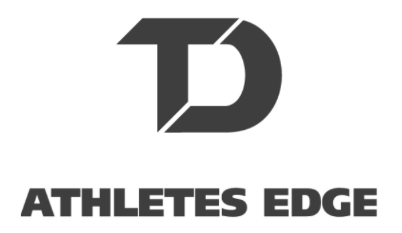COMPLETE BREAKDOWN: DECELERATION AND LANDING FOR ATHLETIC DEVELOPMENT
Learning how to slow your body down (decelerate), harness body control and pump the brakes in key athletic positions all serve as necessary skills to truly excel in sports and athletics. It comes as no surprise that proper landing mechanics and deceleration techniques also serve as valuable skills to build a resilient and robust frame of athleticism. An additional component to note is the skill of feeling the ground beneath you, which is pivotal for long-term health and performance.
When covering this topic with your athletes, be sure to focus on BOTH the linear and lateral aspects of landing and decelerating. Why? Well, sports and athletic endeavors take place in a variety of planes of motion, speeds and intensities, so it's crucial to leave no stones unturned here if your plan is to properly develop athletic performance.
Change of direction (COD) in sports places a high level of demand and stress on the lower body, specifically in the associated support structures (i.e., muscle tissues, tendons, ligaments and bones) in the ankle, knee and hip areas. Preparing the body to withstand these stressors, rigors and demands through proper landing and deceleration training will be crucial for the health and longevity of your athletes.
Consider this article a step-by-step representation of the fundamental building blocks for learning proper deceleration and landing mechanics.
Section 1
This section will focus on linear landing and deceleration mechanics on two legs and on one leg both on the floor and from a depth drop off of a box.
1. Drop Squat
2. Drop Squat to Stick
3. Drop Squat into Stick
4. Drop Split Squat to Stick
5. Drop Reverse Lunge to Stick
6. Drop Squat to 1-Leg Stick
7. Depth Drop to Stick
8. Depth Drop to 1-Leg Stick
Section 2
This section will focus on lateral landing and deceleration mechanics on two legs and on one leg both on the floor.
1. Drop Lateral Squat
2. Drop Lateral Squat to Stick
3. Drop Lateral Lunge to Stick
4. Lateral Shuffle to Stick
5. Alternating Lateral Shuffle to Stick
6. Lateral Shuffle to 1-Leg Stick
7. Alternating Lateral Shuffle to 1-Leg Stick
Looking for more training tips to master your movements? Check us out for in-person trainingt our state-of-the-art facility in Salem, MA or look into our online training program.
Like what you read?
Sign up now to get the latest tips and advice
Matthew Ibrahim is the Co-Owner & Lead Performance Coach of TD Athletes Edge. He has been an invited guest speaker nationally in over 10 U.S. states, which was highlighted by his presentations at Google Headquarters and Stanford University, in addition to guest speaking internationally in Milan, Italy. His work has been featured in Men’s Fitness, STACK Media and The PTDC. Currently, he is completing his masters degree at Rocky Mountain University with a direct track into their PhD program. He is a big fan of interacting on Instagram and regularly posts about training, performance and recovery.
Follow along here: https://www.instagram.com/matthewibrahim_/
ABOUT THE AUTHOR

Matthew Ibrahim is the Co-Owner, Director of Strength & Conditioning and Internship Coordinator at TD Athletes Edge in Salem, MA. Throughout his career, Matthew has been an invited guest speaker nationally in over 10 U.S. states, which was highlighted by his presentations at Google Headquarters, Stanford University, Equinox, Lululemon and Mike Boyle Strength & Conditioning, in addition to guest speaking internationally in Milan, Italy. He has also been an invited guest speaker by the National Strength and Conditioning Association (NSCA) at the regional conference level and at the state clinic level. His professional work has been featured in some of the world’s largest publications, such as Men's Health, Men’s Fitness and STACK Media. Currently, he is a PhD student at Rocky Mountain University of Health Professions in the Human and Sport Performance program. Matthew also serves as an Adjunct Professor of Exercise Science at Endicott College and an Adjunct Professor of Exercise Science at Maryville University.
